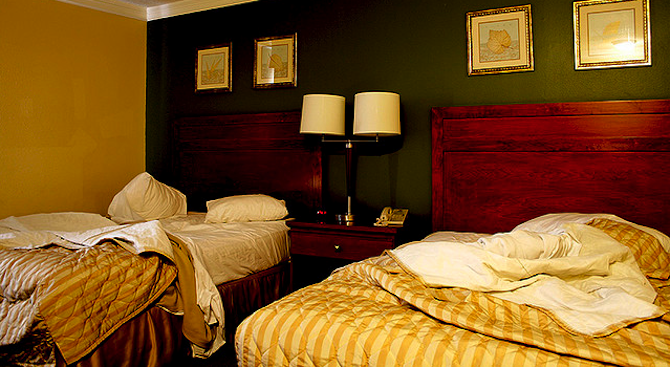3 Scams Targeted At Hotel Guests
The Federal Trade Commission recently posted a list of scams targeted at unsuspecting hotel guests:
1. The late night call from the “front desk”
You’ve checked in, showered, unpacked, and fallen asleep to the cruddy, standard-definition basic cable on your hotel’s TV. Then the room’s phone rings. It’s the front desk calling to say there was a problem with your credit card. Could you please just share that information again?
Credit card goofs aren’t uncommon; nor are calls from the front desk. So you might not think twice about giving out your card number over the phone, especially if you’ve been woken up by the call.
But the chances are that the person calling you isn’t working at the front desk, but is instead a scammer trying to trick you into sharing your card info.
Most hotels will ask you to come to the front desk to deal with a card issue. Even if they say it can be handled over the phone, it’s in your interest to insist that this be cleared up in person.
2. The pizza delivery “deal”
Room service can be prohibitively expensive, so when a local pizza place slides a flyer under your hotel room door, you might be tempted to go the cheaper route of ordering up a pie. And who doesn’t like pizza?
While the pizza flyer may be legitimate, there’s also the chance that it’s a complete fake, and that the only thing you’ll receive after placing a phone order with your credit card is a bunch of fraudulent charges to your account.
If you want to order food up to your hotel room, make sure you’re ordering from a legitimate business. And even if the name on the flyer belongs to an actual pizza place, check that the number matches the one listed with the real pizzeria. You can also check with the front desk for recommendations, or just go out and get some food.
3. The fake WiFi network
As we pointed out recently in this story about public WiFi hotspots from Comcast and AT&T, it’s remarkably easy to fake a legitimate hotspot.
And if you’ve ever gone looking for your hotel’s WiFi network, you’ve probably seen a number of sound-alike hotspots available. Make sure you’re using the correct connection or your computer and all of its data could be compromised.
Additionally, while many hotel WiFi networks require you to enter a room number and last name so that any fees can be charged to your room’s account, you should be suspect of any hotel WiFi that asks you to enter credit card information. This could be a fake trying to steal your identity.
UPDATE: In addition to the bogus WiFi networks scammers set up in hotels, the Secret Service is now warning against malware that logs keystrokes at shared computers in hotel business centers. This is why public computers — not just those in hotels — should never be used for accessing anything that requires a password.
Want more consumer news? Visit our parent organization, Consumer Reports, for the latest on scams, recalls, and other consumer issues.


